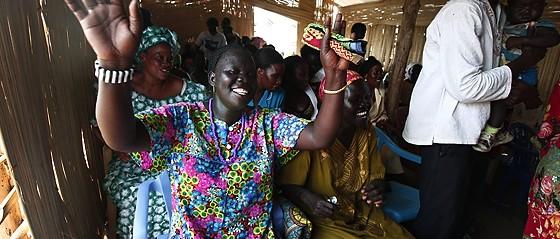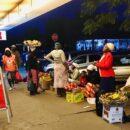How Can Elections be Held in Darfur?
The US Institute of Peace has just published an important briefing on the question of how elections can be held in Darfur under the current circumstances. It points to the all the obvious difficulties: the lack of security in many areas, the fact that many Darfurians support unregistered opposition parties such as the SLM, the failure of the census enumerators to have access to significant populations including non-government held areas and many IDPs, the concerns held by many IDPs that if they register to vote in their current places of residence then they will be disenfranchised in their home areas (and perhaps by implication lose their residence rights) and the fact that in a single-member constituency system, dispersed IDP populations’ votes will be diluted and therefore that they will not be properly represented. This is a formidable list of reservations which imply that, without a peace agreement beforehand, elections in Darfur cannot be considered wholly free and fair.
What I find striking about the report is that despite all these obstacles and objections, “the majority of experts agreed that at least some elections must be held in Darfur.” This is because of the wider considerations of the nationwide transition to democracy under the CPA. Implicit in this conclusion is the argument that we cannot expect democracy to be achieved in a single giant leap, and small steps are better than no steps. They then go on to make a number of very sensible suggestions as to how best to achieve those small steps that are actually possible. They are practical, realistic and worth studying.







Dear Alex,
I am just wondering, similar to the negotiated access operations on the humanitarian arena (e.g. operation lifeline Sudan) where both conflicting parties agree to allow access to areas under their control, would be feasible and possible for the international community (with its apparent leverage on the armed factions in Darfur) would it be possible for them to strike a negotiated-election-access? And provided that these elections in both the government and repels areas are under the supervision/ observation of the UN and International community representatives? And could such an arrangement involve a temporary cease fire agreement for the duration of the elections? I am not sure what am I suggesting, but I guess it is the usual habit of throwing small stones into stagnant waters!
Dear Alex
You would recall that elections were held befroe in Sudan,during the war in the South,in 1965 and 1986.In both cases,elections were not held in all the Southern Provinces.The 1965 democracy was overthrown by the coup of 25th,May 1969,The 1986 Government,was about to implement the 1988 Sudanese Peace Initiative,concluded by the Late DR,Garang and Mohamed Osman Almirghani.That Government was overthrown by the June 1989 coup.The SPLA/M then recogmized the Government,as a de facto government,with partial legitimacy,but accepted dealing with it.I wonder whether suck a formula would work now?Like Ahmed Hassan,I am also throwing small stones in stagnant water.Could an election,partial though,bring some change,that may lead to more,of course with the difference in the current configuration of the various political groups.